Even mild COVID-19 cases can significantly increase a person’s risk of developing a heart problems up to one year later, a new study finds.
A joint research team from Washington University in St Louis and the Department of Veterans Affairs (VA), St Louis Health Care System in Missouri investigated the likelihood of developing a condition in the 12 months following a Covid diagnosis.
They found people with cases of the virus that did not require hospitalization had a 39 percent increased risk of suffering from heart failure and were 24 percent more likely to have a stroke compared to someone who never had Covid.
People with mild COVID-19 cases are also 119 percent more likely to develop a pulmonary embolism – a type of blood clot – and 277 percent more likely to suffer from heart inflammation.
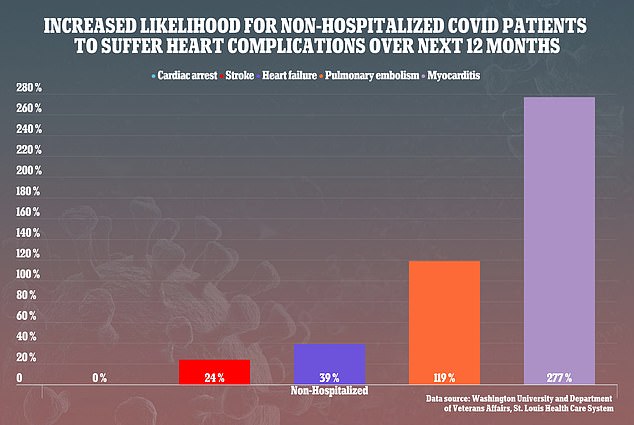
People who suffer mild cases of COVID-19 that do not require hospitalization are still at an increased risk of developing serious complications like heart failure (39% increased risk), stroke (24%) or a pulmonary embolism (119%), a new study finds
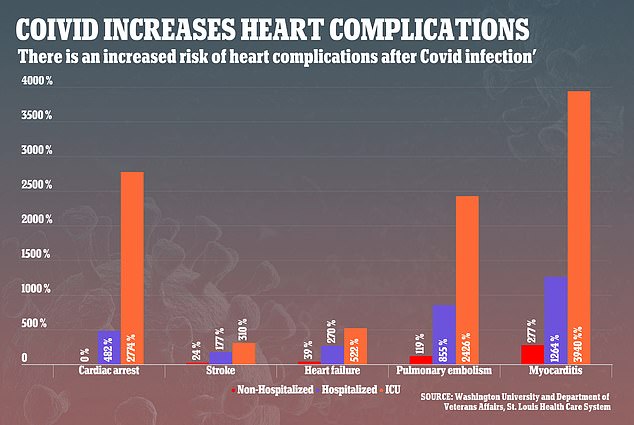
Those who do require hospitalization or even intensive care during their bout with the virus are at an even higher risk to develop these severe conditions over the next year, including a 2,426% increased chance to develop a pulmonary embolism and a 2,774% increased chance to suffer cardiac arrest
Cases that do require hospitalization, or even intensive medical care, often lead to a higher risk of developing these conditions.
Data from the preprint study was made available by Research Square on Tuesday, and is pending peer review before full publication in the journal Nature.
The research presents the worrying prospect that more Americans may be at risk for serious medical issues than believed, and that the nation could face a further health crisis in the future.
‘The aftereffects of Covid-19 are substantial,’ Dr Ziyad Al-Aly, lead author and director of the clinical epidemiology center at the VA St Louis in, told Bloomberg.
‘Governments and health systems must wake up to the reality that Covid will cast a tall shadow in the form of long Covid, and has devastating consequences. I am concerned that we are not taking this seriously enough.’
‘Long Covid’ is a term used for the lasting effects the virus will have on someone’s body, even after they recover.
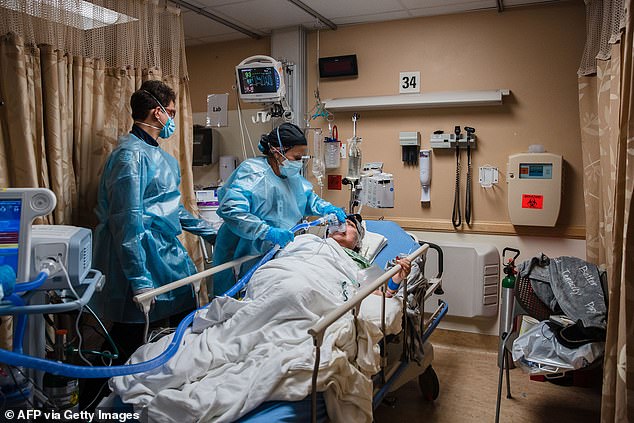
Requiring ICU treatment, often the most serious cases of the virus, leaves someone at the highest risk of developing severe medical complications down the line. Pictured: A patient in an Apple Valley, California, ICU is placed on a ventilator on January 11
In more mild cases, a person may suffer a reduced ability to smell or taste things.
More serious cases can leave a person bed-ridden, or even have them develop serious complications months down the line as a result of the damage the virus did to their body.
Why or how the virus affects a person’s body in this way in unknown, though experts fear ‘long Covid’ could become a post-pandemic epidemic as many people’s bodies will forever be changed by the virus.
These types of serious medical conditions developing in people who suffered minor cases of the virus is an especially worrying effect of ‘long Covid’.
With 44 million Americans and 219 million people worldwide contracting the virus, a swell of medical issues may be seen worldwide in the near future.
Those with more severe Covid cases are at a much higher risk of long-term heart issues.
Researchers found that people hospitalized with the virus were at a 482 percent increased risk of cardiac arrest up to a year after being infected – while the risk was negligible for those with mild cases.
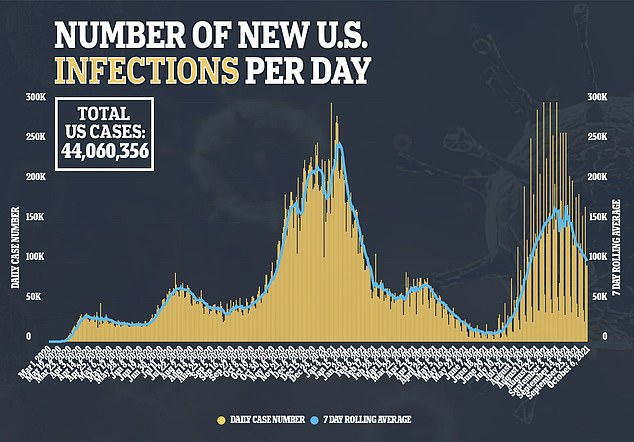
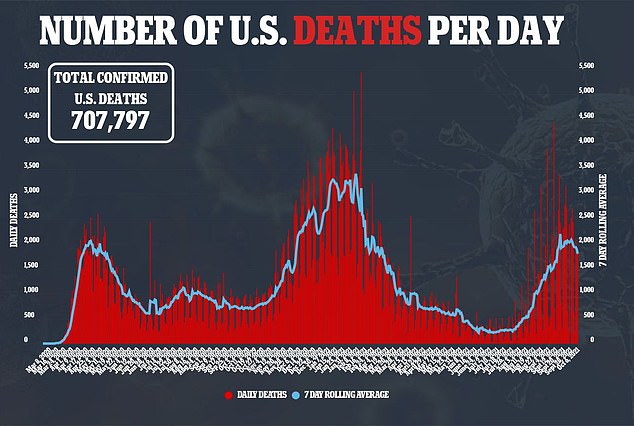
Those that required intensive care in an ICU are at an astronomical risk with a 2,774 percent increased chance to go into cardiac arrest following Covid.
Being hospitalized with the virus made someone more than twice as likely to suffer a stroke than average – 177 percent – and those that entered the ICU were four times as likely.
A pulmonary embolism is a type of blood clot that often originates in someone’s legs before traveling elsewhere in the body.
People who contract Covid and are hospitalized are at a 855 percent increased risk to develop the clotting.
A person who ends up in intensive care due to the virus is at a 2,426 percent increased chance.
Additionally, patients hospitalized during a bout with the virus is at a 1,264 percent increased risk, and those who are admitted to an ICU are a whopping 3,940 percent more likely to develop rare heart inflammation.
Myocarditis is a relatively minor condition compared to the others researched in the study – because the heart inflammation often resolves itself and is somewhat common after viral infections – but it could prove to be deadly in some cases as well.
It is a common side effect of Covid, but those that experience severe cases of the virus are also more likely to develop it that those with mild cases.
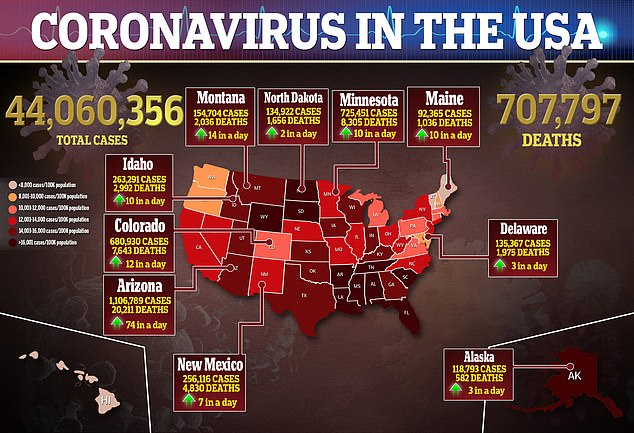
Source link : https://www.dailymail.co.uk/health/article-10069555/COVID-19-survivors-werent-hospitalized-40-increased-chance-heart-failure.html











